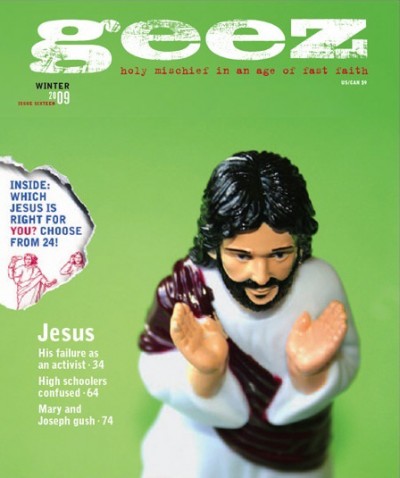Entry-level social change
It’s not every day that you encounter a book like Clawson’s, which offers something heavy-hitting advocates for social change don’t – a recipe for “just living” which doesn’t ask the reader to radically alter their way of life. Not to say Everyday Justice isn’t practical, serious, and well-researched – it is all of these things.
It’s not every day that you encounter a book like Clawson’s, which offers something heavy-hitting advocates for social change don’t – a recipe for “just living” which doesn’t ask the reader to radically alter their way of life. Not to say Everyday Justice isn’t practical, serious, and well-researched – it is all of these things. And Clawson sees no benefit in creating a conversation after which her readers feel “overwhelmed at the sheer immensity of the problem.”
The problem, in Everyday Justice, is broken into digestible chunks. Chapters entitled “Chocolate,” “Cars,” etc. offer journalistic overviews of the ethical problems specific to those products, and end with calls to action: buy fair trade, drive less, raise awareness, shop somewhere new. Everyday Justice is thick with scriptural references backing Clawson’s argument – that “Justice is done in the name of, by the power of and in the community of Jesus.” But you don’t need to be a radical to switch your coffee brand.
Clawson’s intended audience is easily imaginable – the well-churched, politically conservative Western middle-class, perhaps; people with weak knowledge of social justice issues and the problematic connections between the creation and consumption of products. This book reads like a primer on social justice for Christians. Clawson spends so much time justifying ethical consumerism with scripture that she occasionally neglects a deeper analysis of the problem, or ways to begin correcting it. Mostly, this book boils down to money: how you spend it and why it matters.
Readers looking for a deeper analysis of global economics would be well-advised to turn to something like Tricia Gates Brown’s Free People, which offers a close reading of economics that is steeped in theology and written in an unapologetically sophisticated style.
If it comes to a choice, however, it’s not a matter of which book is better or more rigorous: it depends entirely on audience. Or how panicked you feel, or want to feel, about living justly.



Sorry, comments are closed.